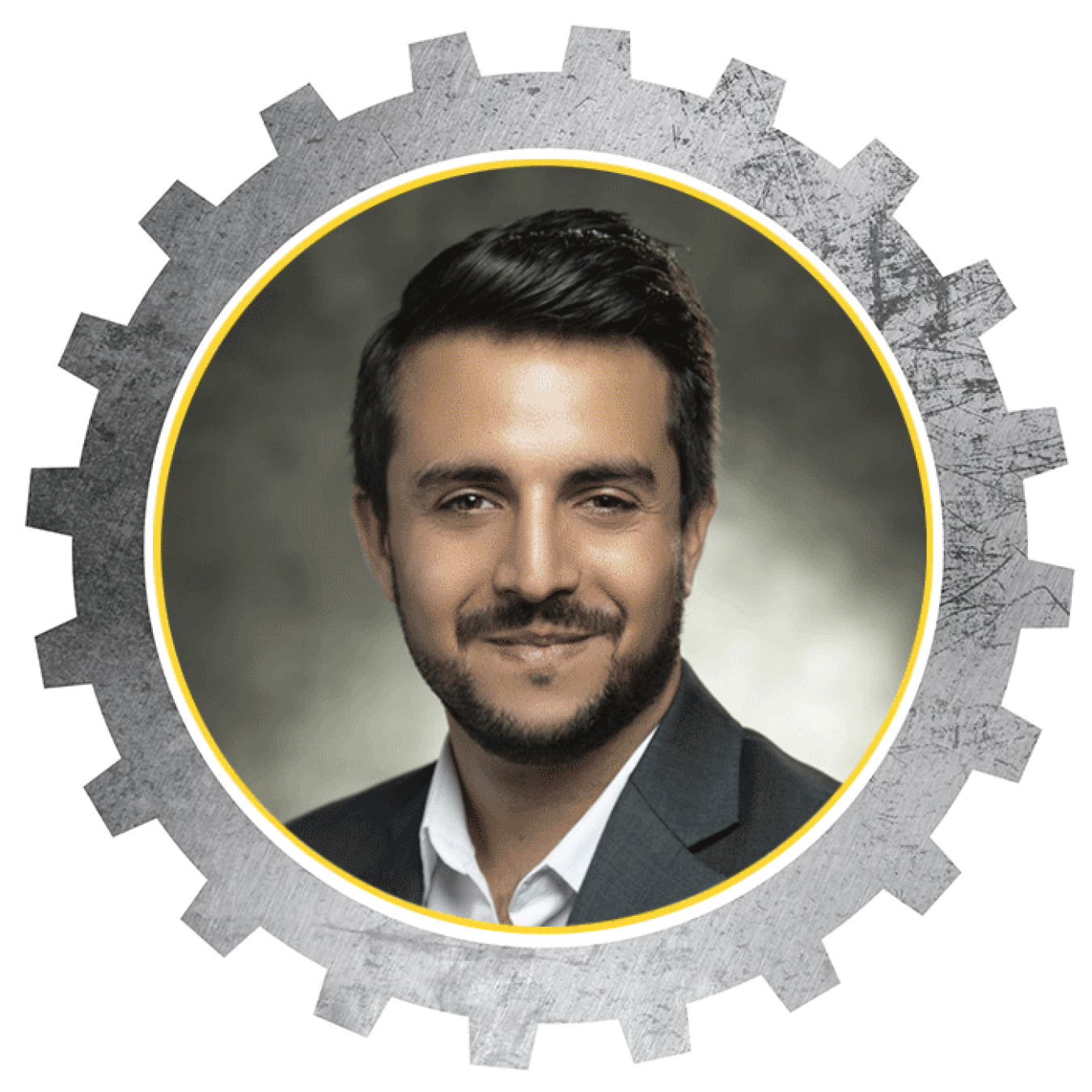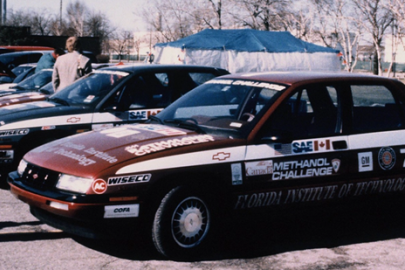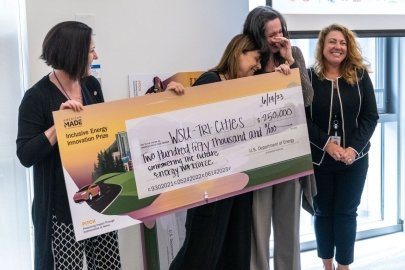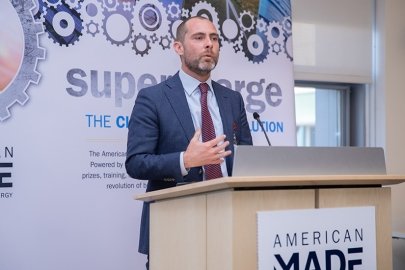The U.S. Department of Energy leveraged American-Made Challenge Prize competitions to get capital to clean energy organizations that were previously unable to access traditional federal funding resources.
Office of Energy Efficiency & Renewable Energy
September 18, 2023Part 4: Changing for the Better
Prize competitions create opportunities for innovators and entrepreneurs that ultimately benefit all Americans by helping to create a safe, secure, reliable clean energy landscape. Their very nature generates excitement among competitors and across the U.S. Department of Energy (DOE), unleashing creativity that could solve the biggest challenges of our time.
Have an innovative idea? Enter a prize competition that’s right for you.
When the American-Made Challenges began, Water Power Technologies Office director and prize program originator Jennifer Garson says she and her colleagues imagined prizes could change the way DOE invests in startups. By allowing untested ideas in the door, prizes were supporting innovation generation. This creative solution allowed DOE to get capital to organizations that were previously unable to receive federal funding, while also preparing competitors to apply for future funding opportunities.
“All of these theories came to be true even five years in,” she says. “In 10 years, we want to show that prizes are the most accessible model to get initial capital into ideas and organizations. That helps make our portfolio stronger and more diverse and really attract new ideas and break open concepts that help decarbonize the economy.”
Associate Principal Deputy Assistant Secretary for Energy Efficiency and Renewable Energy Alejandro Moreno wants DOE to keep expanding its portfolio of funding mechanisms “to ensure we’re always using our funding as effectively as possible and [that the funding is] as fit for the purpose we have in mind as possible.”

"It’s like 'American Idol'—when contestants win, they get the financial prize and TV show glory, but even those who don’t win may still end up with new contacts, opportunities, and maybe even a recording contract."
He also says prizes serve an important function of creating awareness around what competitors are doing and making connections that can accelerate the commercialization of their innovations.
Moreno thinks about how prizes can evolve as “a mechanism to achieve a particular end with a certain amount of money that maximizes the impact of the taxpayer dollar.” He says this involves knowing when to use a prize to solve a problem—as opposed to other DOE mechanisms, such as research institutes and hubs—and designing the prize in the right way to solve it.
An Ever-Expanding Ecosystem of Innovative Problem Solvers
Of course, creating new funding mechanisms or programs to incentivize clean energy technology research and development is an option as long as someone is feeling creative: “What else is out there that, if someone digs in to do the first one, it could spur the next tool that’ll help us accomplish our goals?” wonders prize originator Victor Kane.
In 2020, Kane helped develop the Energy Program for Innovation Clusters (EPIC) Prize to recognize the nation’s best incubators. In this competition, organizations create and implement plans that provide mentorship, technology validation, business development, connections to manufacturers, and other types of support for energy startups and entrepreneurs. In fact, the third round of the EPIC Prize is a new approach: a two-stage prize–to–cooperative agreement program. A cooperative agreement is characteristic of traditional funding opportunities. Twenty incubators will be awarded $150,000 and have six months to work on their projects. Those that demonstrate the most impact will be invited to negotiate a three-year, $1 million cooperative agreement with DOE.
The EPIC Prize is an example of what can happen after examining every angle of the technology-to-market pathway, revealing a gap in innovation at the root of the process. Another is the Community Power Accelerator Prize, which helps community-based organizations and mission-aligned project developers access financing and build community solar projects, particularly in disadvantaged and underrepresented communities. This program fills a need on the implementation side.
Meanwhile, DOE is applying elements of the prize program to traditional funding opportunities. Organizations called Power Connectors in the American-Made Network will step in to support funding recipients, and some small-business awardees are given vouchers they can redeem for assistance from DOE’s national labs.
The American-Made program was built to become an ever-expanding ecosystem of innovative problem solvers. With professionals from national laboratories, accelerators, incubators, universities, facilities, and industry who assist competitors as they develop and launch their innovations, the Network is well positioned to help DOE grow the ecosystem that is so critical to rapidly transitioning the United States to 100% clean energy. Some competitors join the American-Made Network to mentor teams competing in similar prizes, a tribute to the success of the program.

“The people who win are our best champions—they’re out there talking about it, giving back to other teams. I want us to tap into that goodwill and lean into whatever got us that goodwill.”
DOE general counsel Michael Goldstone would like the future of prizes to involve philanthropic organizations that might “fund additional rounds of prizes or provide follow-on investment for winners to make the network more robust.”
Right now, though, Jennifer Garson is happy with what she sees. “Prizes are so attractive to people because the flexibility isn’t found elsewhere in federal funding. If you’re trying to let people shine, this is the thing.”
Have an innovative idea? Enter a prize competition or apply for a funding opportunity for the support you need to bring your climate solution to market. Want to see what American innovation will create next? Follow the latest prize updates on the HeroX platform.
Read the Rest of This Four-Part Series
-
 The U.S. Department of Energy had to invent new options for funding start-ups because the effects of climate change were outpacing technology commercialization.
The U.S. Department of Energy had to invent new options for funding start-ups because the effects of climate change were outpacing technology commercialization. -
 Prize competitions at the U.S. Department of Energy are designed to make it easier and quicker for American innovators to develop clean energy technologies, launch businesses, and increase U.S. manufacturing.
Prize competitions at the U.S. Department of Energy are designed to make it easier and quicker for American innovators to develop clean energy technologies, launch businesses, and increase U.S. manufacturing. -
 The U.S. Department of Energy launched the first American-Made Challenge in 2018 to attract more diverse American innovators and accelerate commercialization of clean energy technologies.
The U.S. Department of Energy launched the first American-Made Challenge in 2018 to attract more diverse American innovators and accelerate commercialization of clean energy technologies. -
 The U.S. Department of Energy leveraged American-Made Challenge Prize competitions to get capital to clean energy organizations that were previously unable to access traditional federal funding resources.
The U.S. Department of Energy leveraged American-Made Challenge Prize competitions to get capital to clean energy organizations that were previously unable to access traditional federal funding resources.

